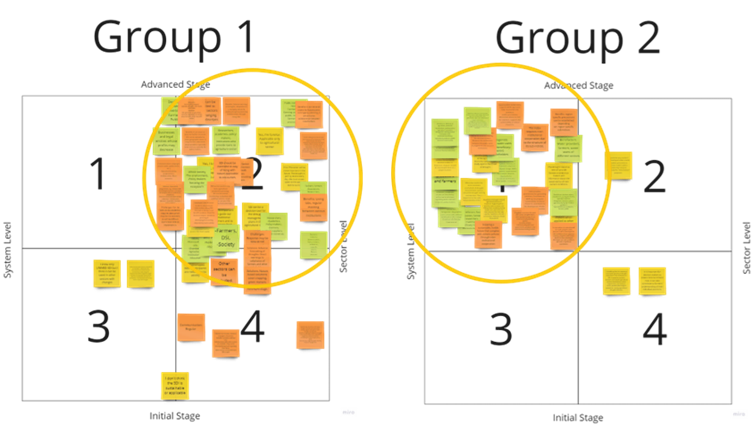
Register with Plumtri!
Register on plumtri as an Individual or as an Organisation to gain access to all of its useful features and remain updated on the latest R&I news, events and funding opportunities.
-
 Welcome to plumtriA platform for Research & Innovation
Welcome to plumtriA platform for Research & Innovation -
 Looking for Funding?Check out the current open calls
Looking for Funding?Check out the current open calls -
 Register today to start receiving our monthly newsletter
Register today to start receiving our monthly newsletter -
 Looking to partner up?Search our list of registered profiles
Looking to partner up?Search our list of registered profiles -
 You have questions on a particular funding programme?
You have questions on a particular funding programme?
UNIMED Continues its Workshops on Coping with Droughts in the Agricultural Sector

UNIMED organised its fourth stakeholder workshop at the International Agricultural Research and Training Centre (UTAEM) in Menemen, Turkey on 4 April 2024. Twenty experts from the agricultural sector in Turkey participated in the workshop, which was divided in two parts.
In the first part of the workshop the participants were asked to assign weighting coefficients to the four indices which make up the Survivability-of-Droughts Index: perception, adaptability, vulnerability, and recoverability. Following on this, the participants were invited to rank the indicators which will be used to calculate each of the underlying indices. The results of this exercise revealed that based on expert opinion, the indicators are fit-for-purpose and there are no dominant indicators.
In the second part of the workshop, participants were divided into two groups and asked to score the maturity of the Survivability-of-Droughts Index and its potential applicability to other sectors besides agriculture. With this aim in mind, the system mapping approach was used, which is promoted by EIT Climate KIC, Europe’s leading climate innovation agency and community. The results of both groups informed that the Survivability-of-Droughts Index concept has reached an advanced stage. Moreover, the experts reached consensus that the novel concept is a highly beneficial one as it brings an integrated tool for farmers, researchers, decision-makers and the general public in the scope of better preparedness for the onset of droughts, permitting the prioritization of drought-prone areas and guiding the drawing up of effective drought management plans. Its applicability also to other sectors was promoted by one of the groups, the other group holding the view that the concept is more confined to the agricultural sector. All outcomes were derived from the placing of self-adhesive stickers which informed about the viewpoints of the participants.
Access the video clip bringing snippets from the workshop, produced by IRMCo.
The workshop was led by the Dokuz Eylul University Industrial Application and Research Centre (DEU), based in Izmir Turkey, in collaboration with Integrated Resources Management Company Ltd (IRMCo), an environmental research company based in Malta, and the Malta College of Arts, Science and Technology (MCAST). These three entities form UNIMED’s partnership.
The UNIMED project is financed by Xjenza Malta through the MCST-TÜBİTAK Joint Call 2022 for R&I Proposals. The project’s aim is to develop a unified, indicator-based, framework to better assess, adapt and ultimately cope with agricultural droughts under Mediterranean climate change conditions.
Download the orriginal article from the below link.
Information and image source:
Attachment: External Link
